The Absent Voters of Sri Lanka
Migration in Sri Lanka has seen significant growth in the past two decades, with approximately 1.7 million citizens working abroad and nearly 3 million living overseas. Despite this demographic shift, Sri Lanka’s electoral system has struggled to adapt, continuing to leave its absent voters disenfranchised.
The challenge of enfranchising migrants has been recognized by several parliamentary and presidential electoral reform committees and civil society, yet viable solutions have been elusive. This case study highlights how prospects for the enfranchisement of Sri Lanka’s migrants would require a staged approach.
This paper is part of a series of eight case studies on absent voters in Afghanistan, Bangladesh, Bhutan, India, the Maldives, Nepal, Pakistan and Sri Lanka.
Details
Contents
Introduction
1. Migration in Sri Lanka: Background and characteristics
2. Drivers of migration within and outside Sri Lanka
3. Status of the electoral enfranchisement of Sri Lanka’s migrants
4. Challenges to the electoral enfranchisement of Sri Lankan migrants
5. Prospects for the electoral enfranchisement of Sri Lankan migrants
Abbreviations
References
About the author
About this series
Give us feedback
Do you have a question or feedback about this publication? Leave us your feedback, and we’ll get back to you
Send feedbackThe Absent Voters of Sri Lanka
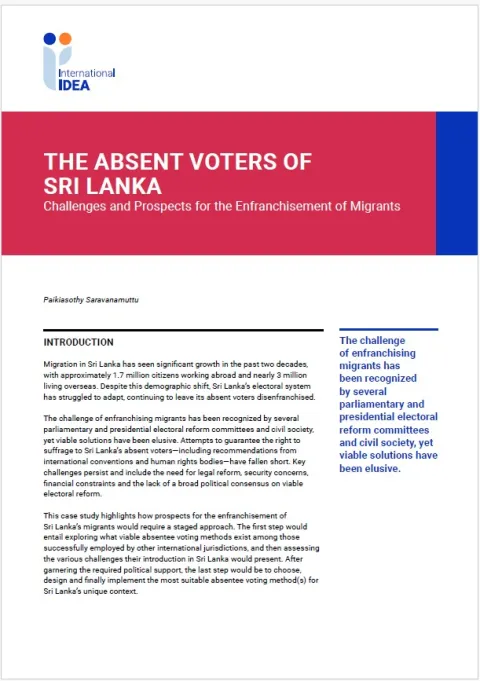
| Total views | 1565 |
|---|---|
| Downloads | 11 |
| Rating |
Give us feedback
Do you have a question or feedback about this publication? Leave us your feedback, and we’ll get back to you
Send feedback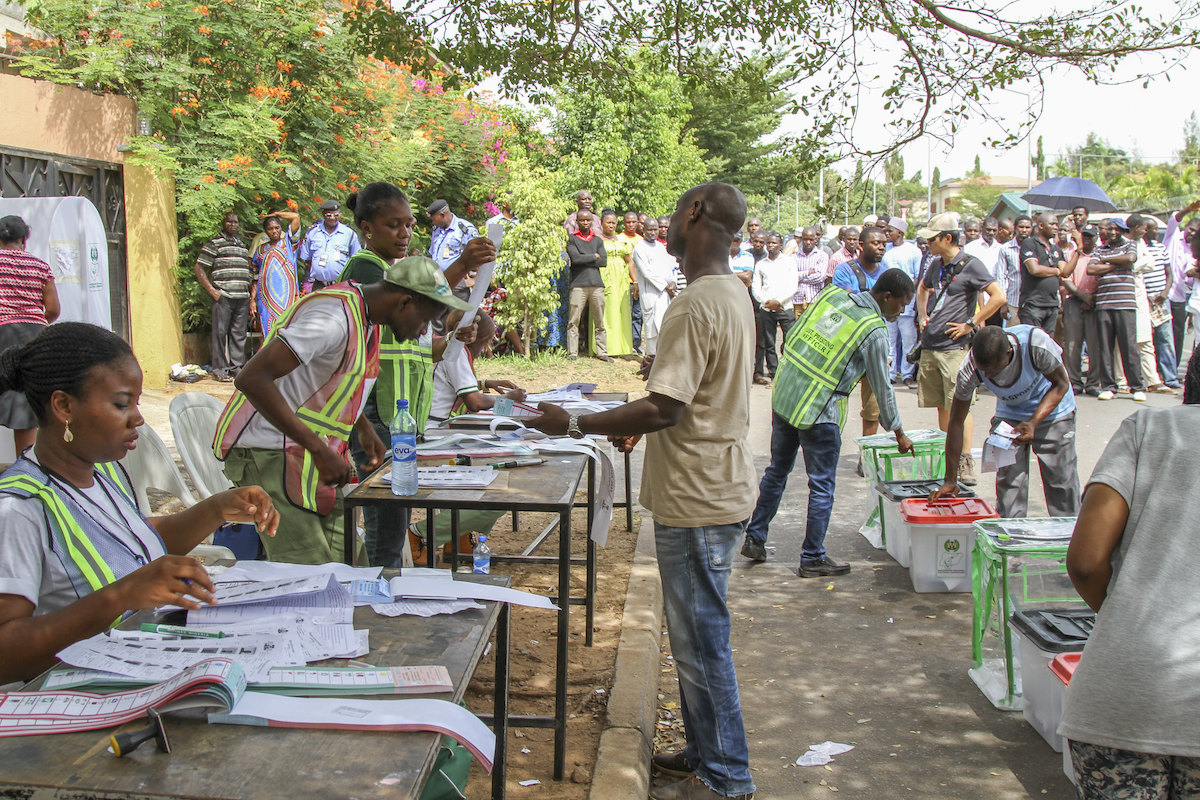
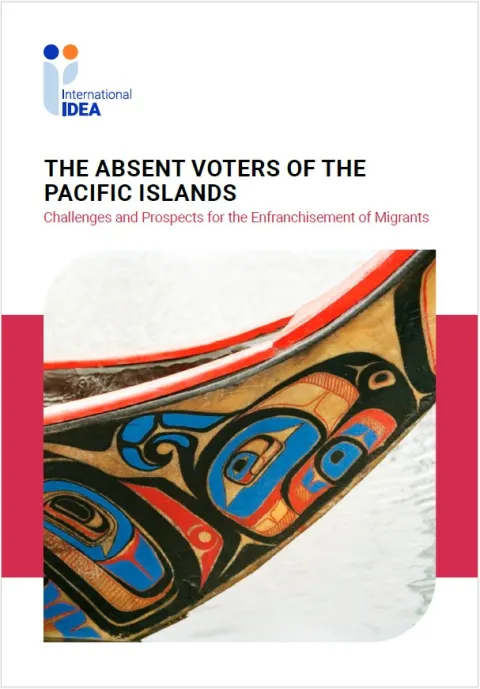
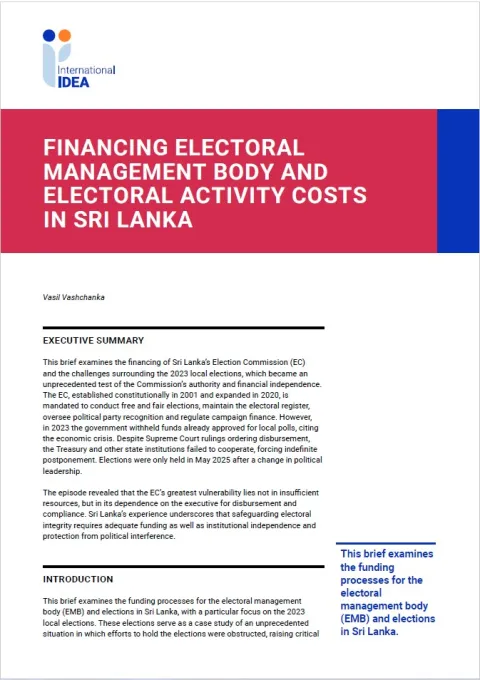
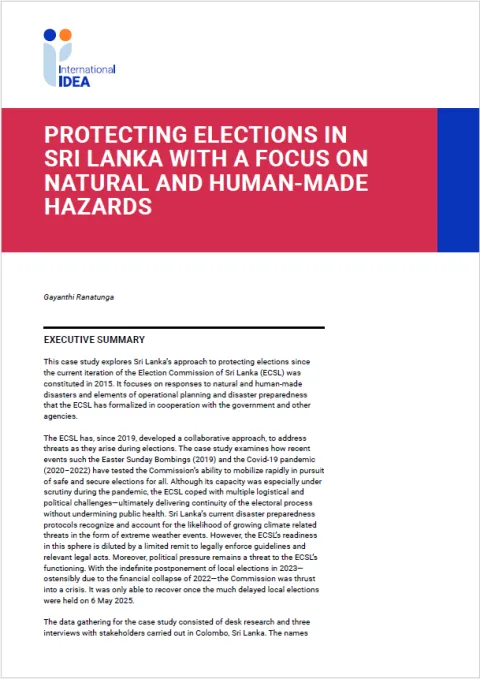
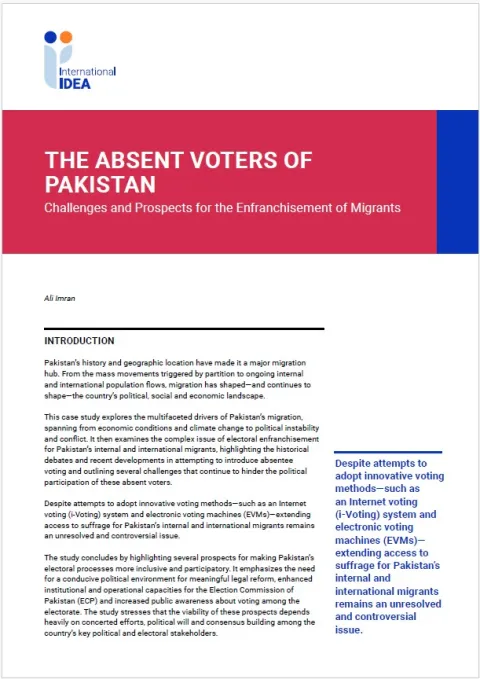
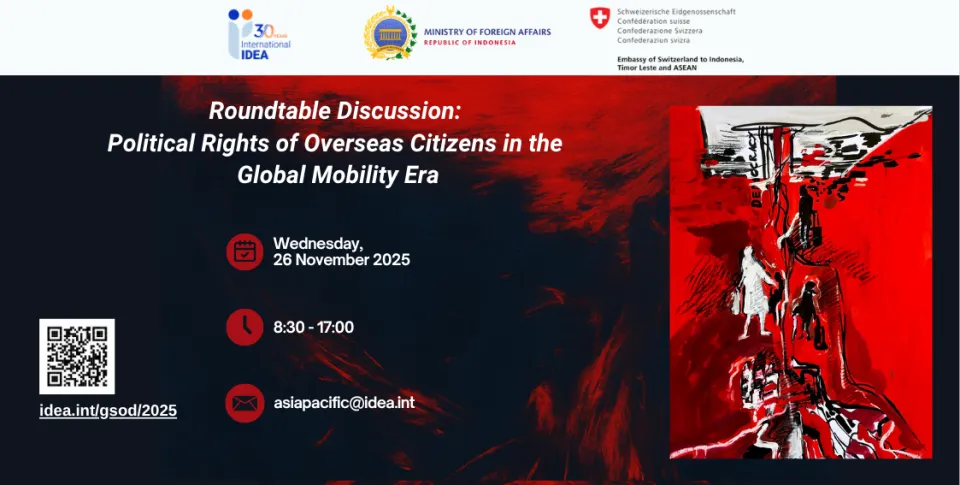



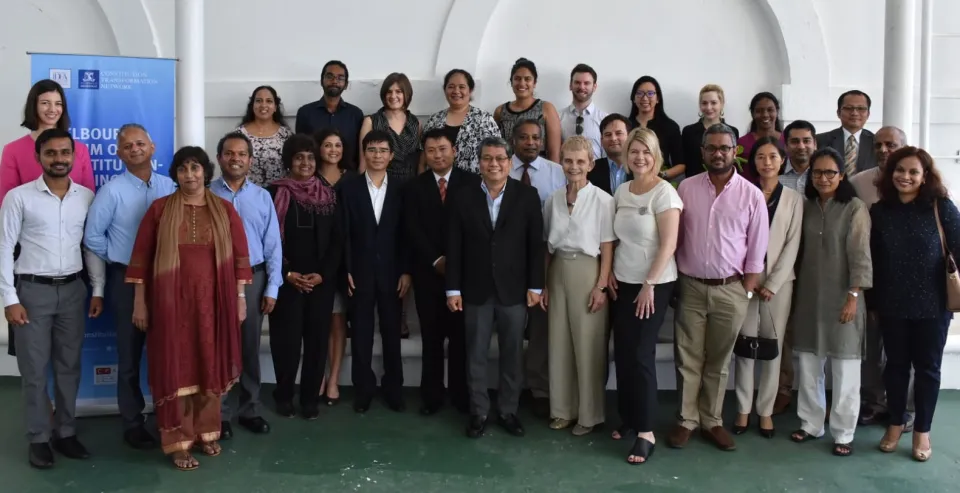
![Election Commissioner Nalin Abeyesekere (right) looks on as Sead Alihodzic promotes Election Commission of India’s Manual on Electoral Risk Management [Photo: Adhy Aman/International IDEA]](https://www.idea.int/sites/default/files/styles/webp_480/public/news/Sri%20lanka-risk-management-workshop-sead1_2.jpg.webp?itok=Vyn8bNlm)
